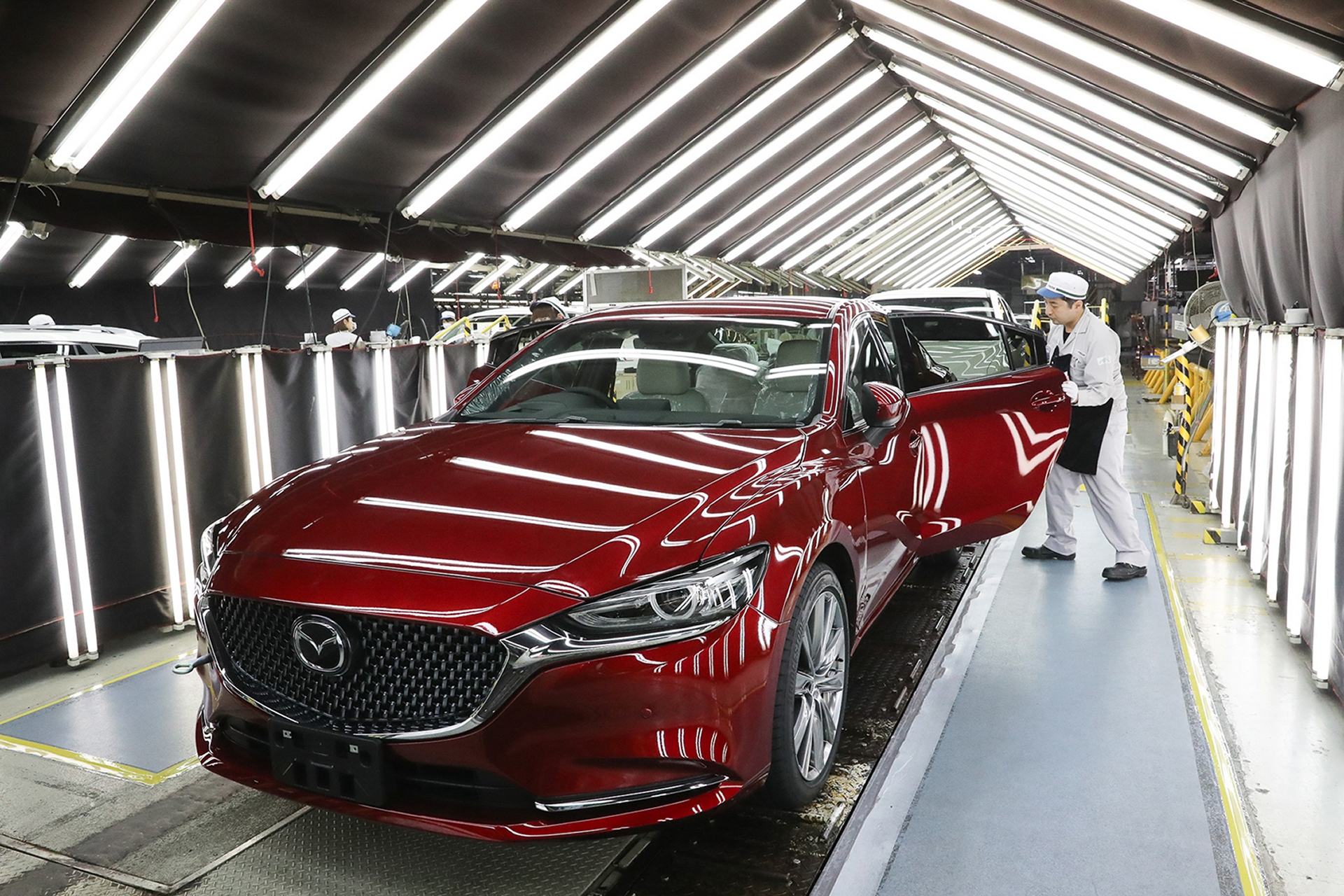

Mazda, Japan’s National Institute of Advanced Industrial Science and Technology (AIST), and Saudi Aramco, the Saudi Arabian state-owned oil company, are teaming up to find ways to reduce carbon emissions associated with internal-combustion engines. The announcement comes as many other automakers are shifting resources toward electric cars in order to lower emissions.
Mazda isn’t ready to give up on internal-combustion engines just yet, predicting that 84 percent of vehicles worldwide will still have them in 2035. But the Japanese automaker does believe that focusing only on improving fuel efficiency is no longer enough. A Mazda statement said the joint research project will focus on the “well-to-wheels” carbon emissions of vehicles, including emissions associated with production of the fuel itself.
Under the agreement, Saudi Aramco will develop a fuel “based on a refinery process that results in lower carbon-dioxide emissions,” according to Mazda. The automaker and AIST will develop an engine that runs on this new fuel.
Well-to-wheels carbon emissions are often used as an argument against electric cars, implying that the emissions associated with generating electricity cancel out electric vehicles’ lack of “tailpipe” emissions. Research has debunked that idea, but it’s possible that looking into the emissions associated with the production of fossil fuels could yield some reductions. Gasoline and diesel cars will never be as clean as electric cars, but that could stave off their demise.
Mazda’s involvement in a project to extend the lifespan of internal-combustion engines is no more surprising than the involvement of an oil company. Rather than offer hybrid or all-electric powertrains, Mazda’s fuel-efficiency strategy for the past few years has been to downsize and improve the efficiency of standalone internal-combustion engines, under its Skyactiv branding. The result has been a lineup of cars that are both enjoyable to drive and cheaper to develop than hybrids or electric cars.
More recently, Mazda has doubled down on its commitment to internal combustion with plans to offer a homogeneous charge compression ignition (HCCI) engine, called Skyactiv-X. This technology, which allows gasoline to be ignited using only compression, as in a diesel engine, rather than spark plugs, adds complexity in the name of efficiency. It shows how far Mazda is willing to go to keep internal combustion alive.
That zeal is likely due to the fact that Mazda lacks the resources to develop hybrid or all-electric powertrains on its own. The automaker is currently partnering with Toyota on electric-car development, and with China’s Changan Auto to develop an electric SUV for the Chinese market. Regardless of how its new research project turns out, Mazda will need electric cars in order to meet stricter global emissions standards.